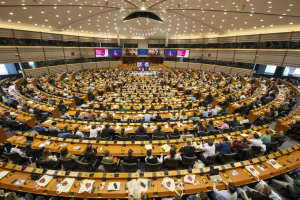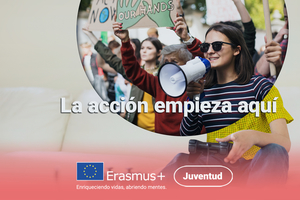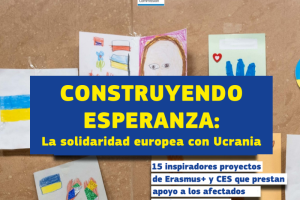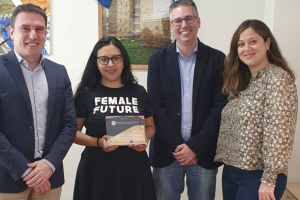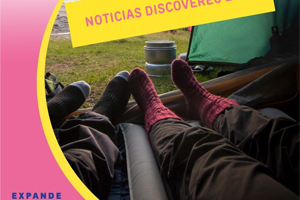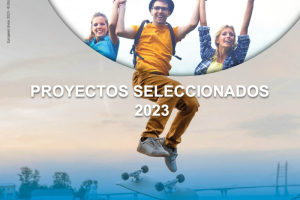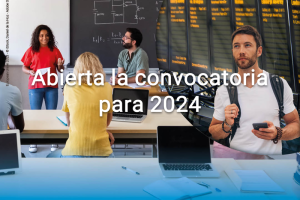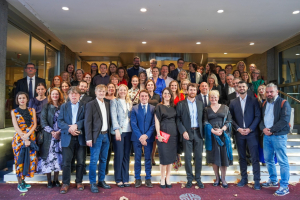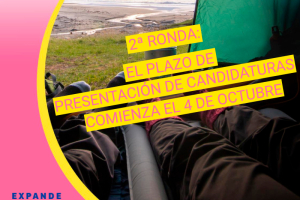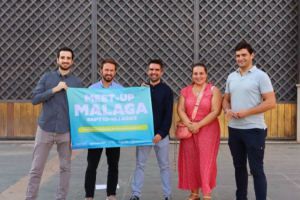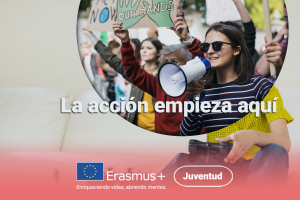Programa Erasmus+ Juventud, 2021-2027 - documentación y noticias
-
La Comisión propone que se entablen negociaciones entre la UE y el Reino Unido para facilitar la movilidad de los jóvenes
La Comisión propuso ayer al Consejo que entable negociaciones con el Reino Unido sobre un acuerdo para facilitar la movilidad de los... -
La Comisión ofrece 35 500 bonos de viaje gratuitos de DiscoverEU para jóvenes
A partir de este verano, miles de jóvenes volverán a viajar por Europa en tren de forma gratuita gracias a la última convocatoria del... -
Cerca de 850 jóvenes de toda Europa se dan cita en el Parlamento Europeo en Bruselas para promover su ciudadanía activa y su participación en las elecciones de junio de 2024
Cerca de 850 jóvenes de toda Europa participarán mañana viernes en una sesión plenaria del Parlamento Europeo en Bruselas, seguida de más... -
Guías y documentación del programa Erasmus+: Juventud y Deporte
Aquí puedes consultar y descargar diversos materiales del programa. -
Generando esperanza para Ucrania: 15 proyectos inspiradores de Erasmus+ y el Cuerpo Europeo de Solidaridad
La Comisión Europea ha lanzado una publicación en la que se presentan 15 proyectos Erasmus+ y del Cuerpo Europeo de Solidaridad, que han... -
El Injuve recibe el Reconocimiento de Buenas Prácticas de la Fundación Cepaim por la Estrategia de Inclusión y Diversidad 2022-2027
El Instituto de la Juventud (Injuve), como miembro de la Agencia Nacional Española (ANE), encargada de gestionar los programas europeos... -
DiscoverEU anuncia cambios para una experiencia de viaje eficiente en 2024
La Comisión Europea (CE) ha comunicado hoy una serie de, pequeñas pero significativas, modificaciones destinadas a mejorar la eficiencia y... -
Semana Europea de la Juventud 2024
La Semana Europea de la Juventud (SEJ/EYW) es una campaña bienal de la Comisión Europea cuyo objetivo es promover la ciudadanía activa ... -
Resoluciones por las que se conceden ayudas para la realización de proyectos Erasmus+ Juventud y Deporte del año 2023.
-
Lanzamiento de la Convocatoria 2024 Erasmus+ y guía del programa
La Comisión ha lanzado la convocatoria de propuestas 2024 de Erasmus+, el programa de la UE de apoyo a la educación, la formación, la... -
Los directores de las Agencias de Juventud europeas que implementan los programas Erasmus+ y Cuerpo Europeo de Solidaridad evalúan y proyectan el futuro de los programas
Los directores de las Agencias de Juventud de los programas europeos Erasmus+ y Cuerpo Europeo de Solidaridad (CES) se han dado cita en... -
DiscoverEU_ Ronda 2
DiscoverEU es una acción del programa Erasmus + que te ofrece la oportunidad de explorar la diversidad de Europa, aprender sobre su... -
El Injuve apoya la candidatura finalista española de Málaga para ser Capital Europea de la Juventud 2026
“Espero que Málaga pueda convertirse en la primera ciudad española en obtener el título de Capital Europea de la Juventud. Sería una... -
Málaga, ciudad elegida para el Meet-up de DiscoverEu 2023
En el marco del programa Erasmus +, Málaga acogerá la celebración del próximo Meet-Up que convertirá esta ciudad en punto de encuentro... -
Lanzamiento del programa Erasmus+ para 2023
La Comisión Europea ha publicado la convocatoria de propuestas para el programa Erasmus+ y la guía para 2023. Con un presupuesto anual de 4...
Páginas
- 1
- 2
- 3
- 4
- siguiente ›
- última »


